
Nov 30, 2020 | Blog, Machine Learning, Artificial Intelligence, and Data Science
As data science has exploded in popularity and use, so have the tools used to solve problems in the domain. Some of these open source programs and programming suites have become extremely popular, and thus developers have designed a whole host of code that might be referred to as add-ons, extensions, and packages to improve functionality and save time for users, both experienced and new.
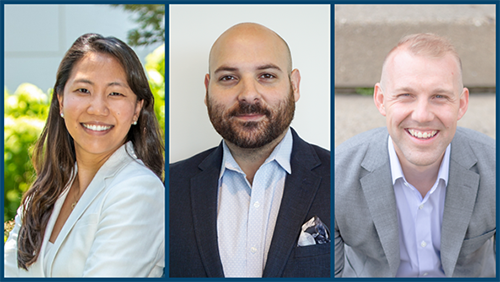
Nov 15, 2020 | Blog, Learning Organization
Innovation, much like improv, isn’t easy, but it can be a powerful way to bring people into a conversation they might typically avoid or feel excluded from. In our latest discussion with the Innovation Toolkit Team, Jen and Josh walk us through the power improvisation can have to start these conversations and how they refined their unique approach.

Oct 26, 2020 | Blog, Machine Learning, Artificial Intelligence, and Data Science
Although the moniker data scientist implies that the role centers around manipulating data and modeling it, visualizing data and creating visualizations are an integral part of the daily workflow for practicing data scientists like me. Not only do visualizations allow us to communicate results quickly and efficiently, but visualizing is a key tool during exploratory data analysis, data cleaning, modeling, and other steps of the process of telling stories with numbers.

Oct 1, 2020 | Blog, Learning Organization
In a mid-summer virtual lunch with student interns, MITRE President and CEO Dr. Jason Providakes said, “We’ve had all this bad news [this summer], but the fact that MITRE can continue an internship program is a testament to our commitment of building the future workforce and serving the public interest.” A key part of MITRE’s overall student program this past summer, which involved nearly 500 student staff members, was the Emerging Technologies Summer Student Research Program, which began in 1989, and despite the pandemic, successfully completed its 32nd summer in 2020, under the leadership of Dr. James Ellenbogen.
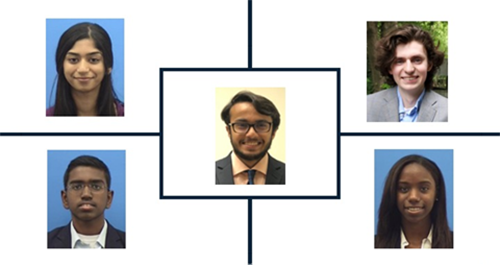
Sep 18, 2020 | Blog, Learning Organization
The classic conception of an intern is a minion who brings people coffee, fixes printer jams, and does grunt work. The interns hired by MITRE’s Emerging Technologies Department, however, are not minions. They are student investigators charged with helping to solve overwhelming societal problems. Read profiles of four of these interns and their summer work in the public interest.

Sep 14, 2020 | Blog, Cross-Organizational Information Sharing
It’s no secret that change can be difficult and slow, especially when it comes to changes at work. Just this week, I heard an executive say, “Anyone who tells you that change is easy hasn’t done it before.”
Yet this year, many of us have quickly embraced virtual collaboration tools. We’ve all experienced numerous other changes, especially as we untethered from the “40 hour+ work on-site” culture. Why have we been so quick to adopt Zoom, Slack, and Office 365? What can we learn from this recent experience so that we can support our colleagues through future change?

Sep 7, 2020 | Blog, Collaboration, Partnerships and Social Media
In 2012, The Economist penned an obituary for the Public-Private Partnership (PPP). The headline: ‘RIPPP’. Eight years later however PPPs are very much alive and the appetite for them has not slowed in spite of high-profile scandals and debates about the commodification of public infrastructure.
PPPs, while diverse and increasingly complex, can most easily be thought of as a long-term contract between a public agency and a private party to execute or operate a project.
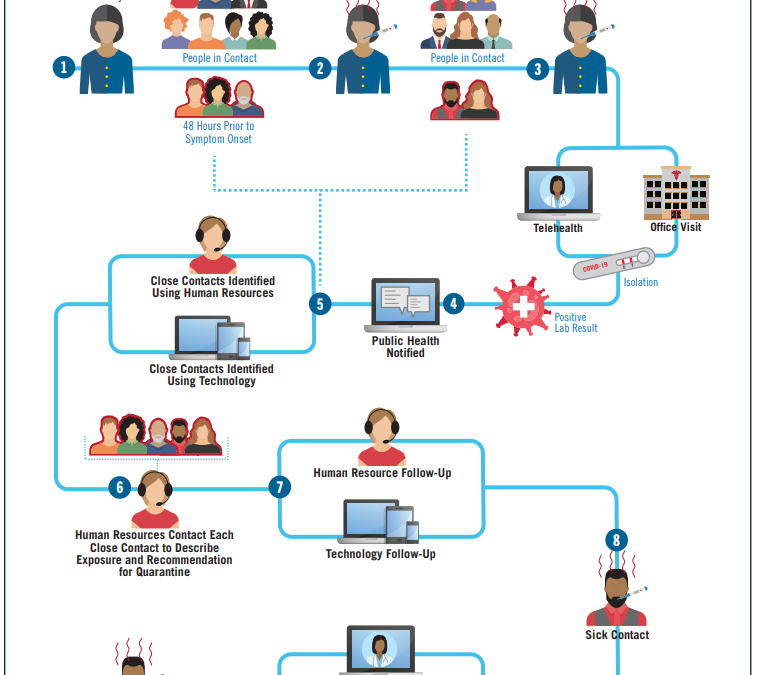
Sep 1, 2020 | Blog, Cross-Organizational Information Sharing
A computer scientist looks at a refugee crisis to model a pandemic.
How does that connection work exactly and why? If it appears to resemble a scenario in which a farmer learns how to plant an apple orchard by examining the supply chain for manufacturing orange juice, well, you may actually be onto something. The novel coronavirus has presented unprecedented medical, social, and economic challenges, which means that the thoughtful people responding have no choice but to innovate. However, in 2020, innovation doesn’t mean going where no one has gone before. It means harvesting everything that has come before in a disciplined way to see what might bear fruit.

Aug 24, 2020 | Blog, Knowledge Advantage
I work as a DevOps Engineer. For a long time, I could not explain my career in a way that my mother could understand. She wanted to understand, but something as abstract and complex as DevOps can be hard for a lay person to grasp.
Eventually, I realized that my explanations focused only on the technical aspects of DevOps—the pipeline, automation, Infrastructure as Code—and not on the foundational principles of DevOps itself: Flow, Feedback, and Continuous Improvement. These three principles, called the Three Ways, I can explain to my mother by using her favorite hobby—baking—as a metaphor.
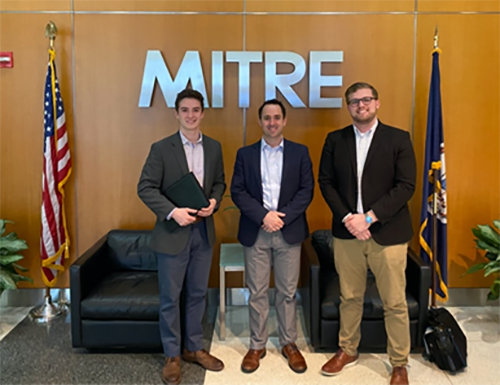
Aug 17, 2020 | Blog, Cross-Organizational Information Sharing
In designing solutions to some of the most pressing, complex, entrenched problems facing the nation, MITRE employees know they have to get creative.
And, as a company working in the public interest, we want to be sure the next generation of engineers and business leaders can address similarly formidable challenges. We want them to get creative too.
That’s why we recently deepened our partnership with James Madison University in Harrisonburg, VA by bringing MITRE into the classroom.
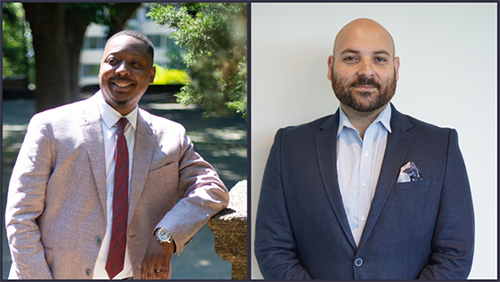
Aug 10, 2020 | Blog, Collaboration, Partnerships and Social Media
The STEM field has been described as the great equalizer, a field that celebrates and elevates those who contribute to it. Still, many students, especially students of color, find it intimidating and hard to approach. Fortunately, individuals like Willie Hill are dedicating their time and talents to show students of all backgrounds that STEM is fun and worth getting excited about.
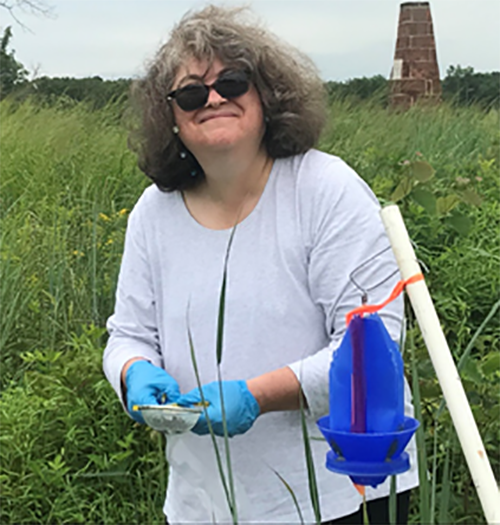
Aug 4, 2020 | Blog, Cross-Organizational Information Sharing
“Science,” “collaboration,” and “serving the best interests of the wider community” are cherished values at MITRE, as is the concept of continuous learning. At MITRE, citizen science is thus a volunteer and civic activity, a hobby, a tool for research, a source of learning, a professional and social networking opportunity, and a means of giving back to the scientific community.
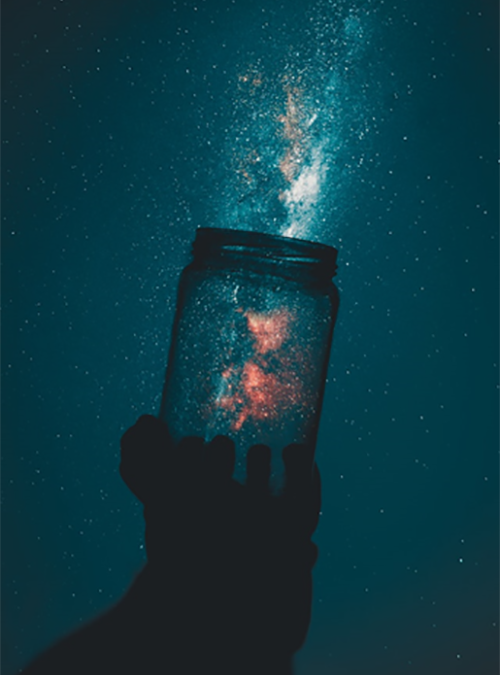
Aug 2, 2020 | Blog, Learning Organization
At first glance, creativity might seem like the ability to make something from nothing. That isn’t actually true, but creativity does require an active imagination and the ability to judge what, among all the imagined things, might have value, given what you’re trying to accomplish. Creativity in engineering and in the arts requires the ability to generate a wide variety of ideas that relate to the goals of the effort, often the more ideas the better. Judgment is then used to evaluate the merits and flaws of each idea.

Jul 25, 2020 | Blog, Collaboration, Partnerships and Social Media
This story is the first in a series about how The MITRE Corporation tackles complex problems. This first article probes the concept of upstream thinking in the context of veteran wellness and the value of designing with people rather than for them.
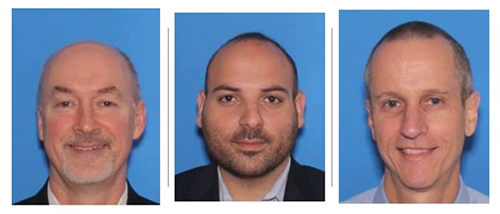
Jul 20, 2020 | Blog, Collaboration, Partnerships and Social Media
Air travel has become so commonplace to the point where many of us never even think about the wonder of flying on an aircraft or being able to send things around the world over night. And yet every day, countless agencies and individuals around the world move in a coordinated ballet even in the face of a global pandemic.

Jul 13, 2020 | Blog, Learning Organization
Regular sources of stress in our lives can arise from challenges at work, challenges in personal life such as with partnership and parenting, and challenges from societal divisions at home and abroad, among many other factors. With one public crisis after another appearing in the news to add to what’s happening directly in our lives, these stress factors may pile on and conspire to make well-being hard to maintain.
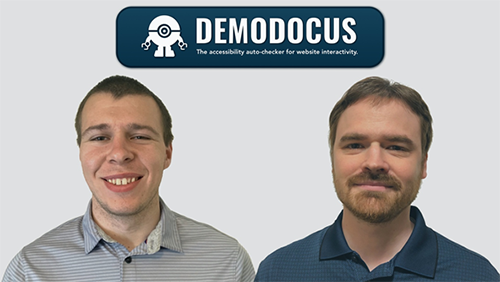
Jul 8, 2020 | Blog, Learning Organization
Every year countless Americans with disabilities interact with government resources for everything from receiving benefits to registering to vote. But not all websites are created equal, and even fewer are designed with the disabled community in mind. Enter project Demodocus, a new automated approach to test websites of all kinds on how usable they really are for those who need more than just a keyboard and mouse.

Jul 6, 2020 | Blog, Learning Organization
On the evening of April 13, 1970, there was a loud “BAM!”, then “Houston, we’ve had a problem.”
Apollo 13 had “lost” the moon because an oxygen tank explosion that wasn’t predicted caused a series of systems failures in propulsion, electrical power, and life support, and the world focused on how three isolated men over 200,000 miles from Earth would get safely home.

Jun 29, 2020 | Blog, Machine Learning, Artificial Intelligence, and Data Science
In November 2019, a customer of Apple Card complained when he and his wife separately applied for Apple Card credit, and his wife was given a credit limit twenty times lower than his despite the fact that they jointly owned all assets in a community property state. According to Neil Vigdor in an article in the New York Times, an Apple Card representative checked into the matter and came back with the explanation that “It was the algorithm.”

Jun 9, 2020 | Blog, Learning Organization
The American Productivity & Quality Center (APQC) has honored MITRE with its 2020 Excellence in Knowledge Management (KM) award, recognizing us as one of the top organizations in the world for our mature KM capabilities. MITRE scored a level five—the highest possible score—in most of the areas the association assessed.




















